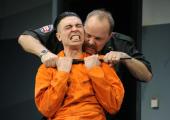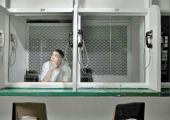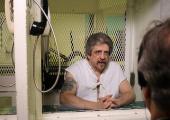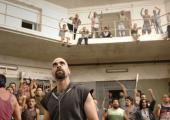Mostly dependable singing, but where's the truth in this tepid hymn to freedom?
What a slap in the face for the human predicament that an opera which, for all its faultlines, should carve "love and courage will set you free" on every heart meets with barely a moment of truth in Jürgen Flimm's production. It's the second Covent Garden revival in a month to give no sense of people or place, and like the McVicar Aida, it should have been put quietly to sleep after its first run. "But Nina Stemme will be wonderful," they all said. Don't bank on it; just be thankful that the soprano's Leonore and, perhaps more impressively, Endrik Wottrich as the imprisoned husband she saves are up to the vocal challenges.
What a slap in the face for the human predicament that an opera which, for all its faultlines, should carve "love and courage will set you free" on every heart meets with barely a moment of truth in Jürgen Flimm's production. It's the second Covent Garden revival in a month to give no sense of people or place, and like the McVicar Aida, it should have been put quietly to sleep after its first run. "But Nina Stemme will be wonderful," they all said. Don't bank on it; just be thankful that the soprano's Leonore and, perhaps more impressively, Endrik Wottrich as the imprisoned husband she saves are up to the vocal challenges.









